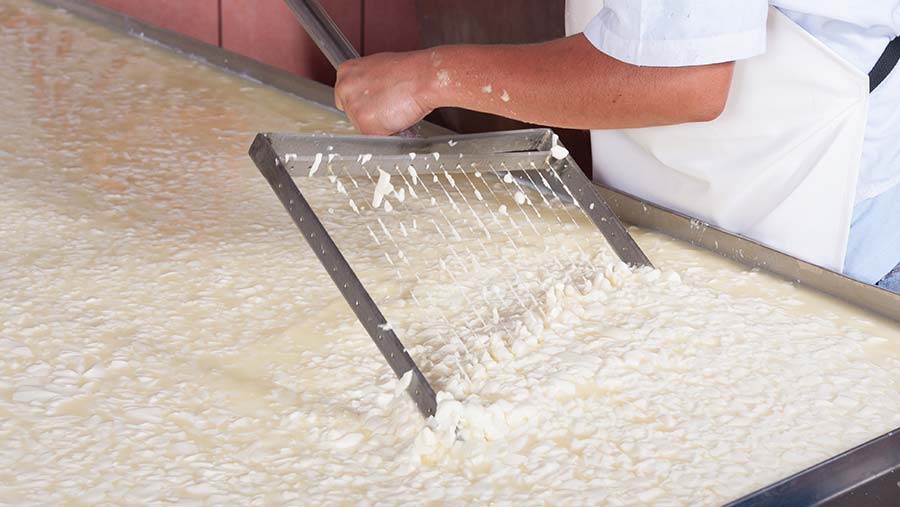Weaker pound set to boost cheese exports and tighten supply
 Wholesale cheese prices have risen 58% over the past year © Adobe Stock
Wholesale cheese prices have risen 58% over the past year © Adobe Stock UK retailers will need to pay suppliers more for their cheese or risk empty shelves, a leading exporter has warned.
Export customers were already paying £200/t more for UK-made cheddar before the government’s tax and finance announcement of last week, said David Evans, managing director at Millbrook Dairy Company.
The slump in the pound since then had exacerbated the situation – it fell to a low of €1.09 on Monday 26 September and, despite some slight recovery on Tuesday 27 September to €1.12, remains weak. This makes UK exports more attractive to overseas buyers but has the opposite effect on imports.
See also: UK cheese exports to Europe grew during first half of 2022
Mr Evans said: “To think that 12 months ago the market was asking the question, would mild cheddar reach £3,000/t, and then two months ago it had reached nearly £5,000/t – gives you some kind of idea of how the market has moved.
“If the currency stays where it is at the minute, it’s going to mean that once again the European cheese suppliers, particularly in Ireland, will not be looking at the UK as a great place to put product, and they will be looking at keeping it in Europe and selling it into other markets, as we are just not currently paying at those levels,” he said.
“The UK will become the shopping basket for European cheese suppliers. More cheese will go out of the UK and less cheese will be imported. Cheese stocks in the UK will become tighter, and this will inevitably push UK cheese prices higher.”
Millbrook Dairy suggests that if the UK wants to keep cheddar cheese on its shelves, retailers are going to have to go above world prices to stop this mass exodus and encourage producers to sell back into the home markets.
“It isn’t rocket science to understand that if cheese producers are being offered £200-plus per tonne more to export cheese, then that is where their cheese is going,” said Mr Evans.
“Unfortunately, UK cheese buyers across the major supermarkets are not looking to pay more for cheese. But global buyers are willing to pay, and that is where the market is going. We are importing less and exporting more, and that is leading to a growing issue in meeting demand here in the UK.”
GB retail prices for cheddar for the four-week period ending 7 August averaged £6.68/kg, up by 14.8% compared with the same period last year, according to Kantar data.
However, UK wholesale prices for mild cheddar increased by 58% on the year to average £4,860/t for the five-week period ending 23 September, according to AHDB estimates.
The AHDB said this was attributed to renewed interest after the summer, coupled with continuing tight supplies.
Rising interest rates
The Bank of England raised its base interest rate by 0.5 percentage points on 22 September to 2.25%, the highest for 14 years.
Mr Evans said the UK typically had two farm business types: traditional family farms which often owed nothing, and a number of larger growing farms which had expanded in the past decade.
“Since 2008, many larger dairy farms have invested significantly in their businesses at very low interest rates,” he said. “The banks are saying that we are at [base rate] 2.25%, but they are now saying it could be 4% within a month and there are some financial forecasts saying this could reach 6% by March.”
Mr Evans highlighted the potential impact of higher borrowing costs on milk production, questioning how larger dairy farms with high borrowings would manage, and whether they would need to sell cows to pay bills.
